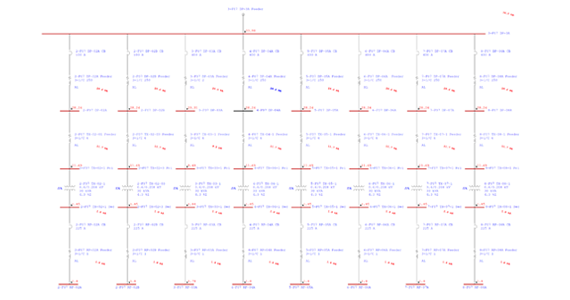What is it
 A short circuit is an undesired, low-resistance connection between two points in an electric circuit through which a very high current flows. A short circuit must be prevented, interrupted or isolated to avoid serious damage to the entire system. Short circuit studies are performed to estimate the prospective value of the fault current that may possibly flow through a short circuit in the system.
A short circuit is an undesired, low-resistance connection between two points in an electric circuit through which a very high current flows. A short circuit must be prevented, interrupted or isolated to avoid serious damage to the entire system. Short circuit studies are performed to estimate the prospective value of the fault current that may possibly flow through a short circuit in the system.
Determination of these values allows for adequate protective measures to be put in place, some of which can include interrupting equipment and protective devices. Short circuit studies also allow prediction of the effects of a fault current onto system components such as transformers, cables and reactors. These studies will also identify areas in the system where a short circuit of varying severity can cause irreversible damage and thus, where isolating devices are crucial.
Why is it needed
An uncontrolled short circuit can have seriously harmful effects on an electric system and the operating personnel in close proximity. The high current flow can damage the equipment and result in downtime of the system, causing an interruption in the operation of the associated commercial or industrial processes. High voltages can also damage the insulated areas of the system, thereby further compromising the efficiency and reliability of the system.
How can we help
Electrical systems are composed of wide range of equipment and are considered complex systems. Our engineers can prepare short circuit studies to analyze
- Capability of existing interrupting equipment
- Impact of fault currents on various system component for the time fault persists
- Identify circuits that can see voltage depressions from faults
- Supporting protective device setting determination
Based on the results of the of short circuit studies, our team will apply corrective measures that can prevent damage to equipment, avoid any downtime, increase the efficiency of operations and protect personnel.
